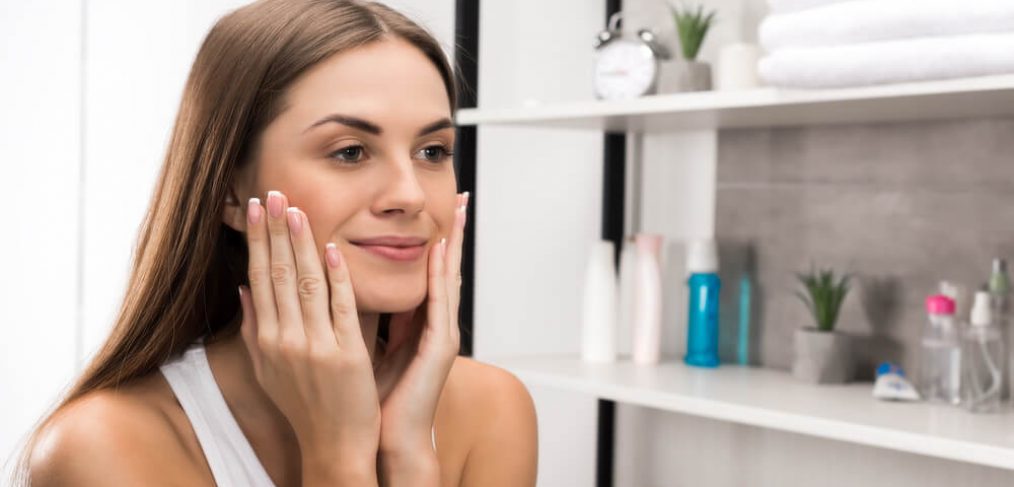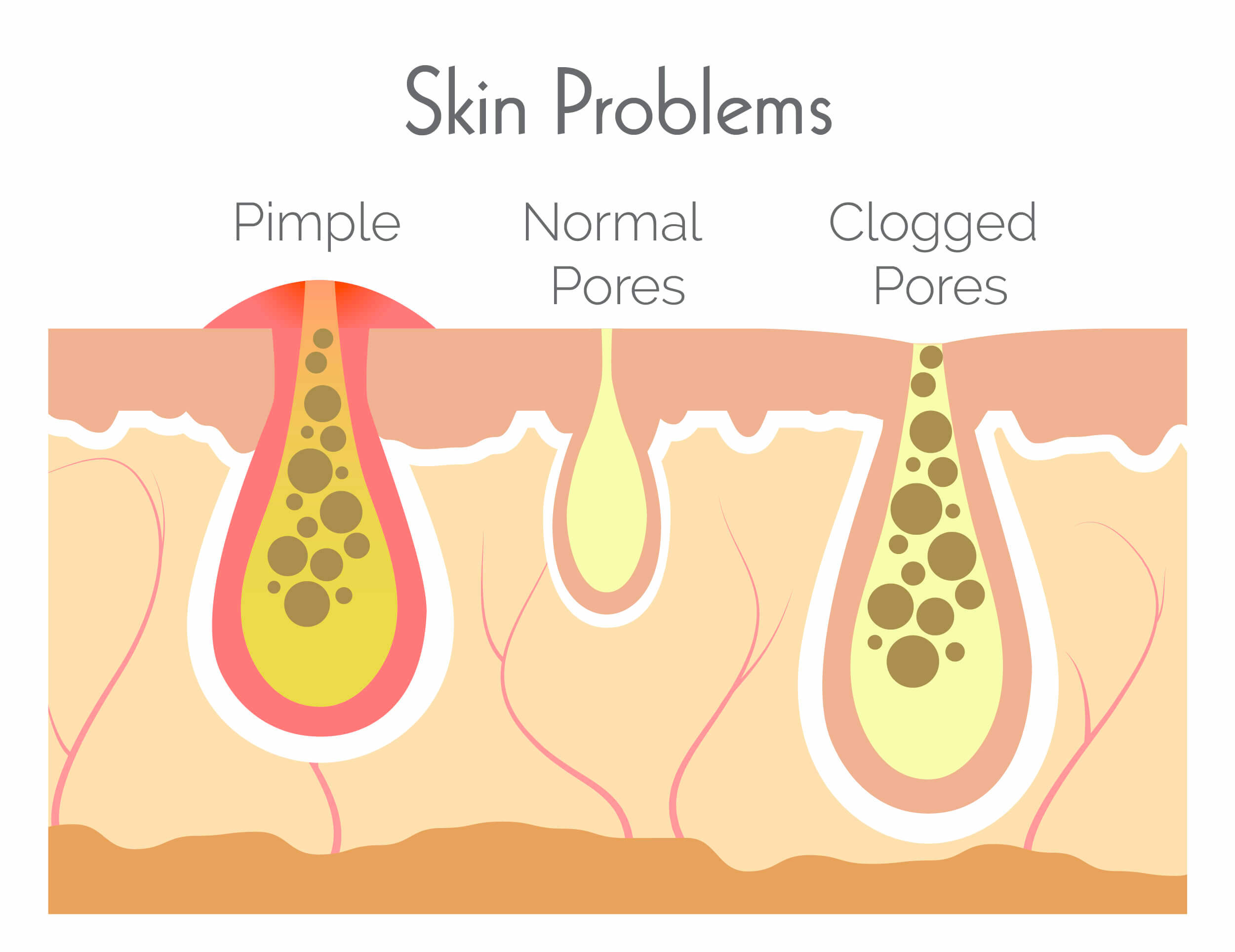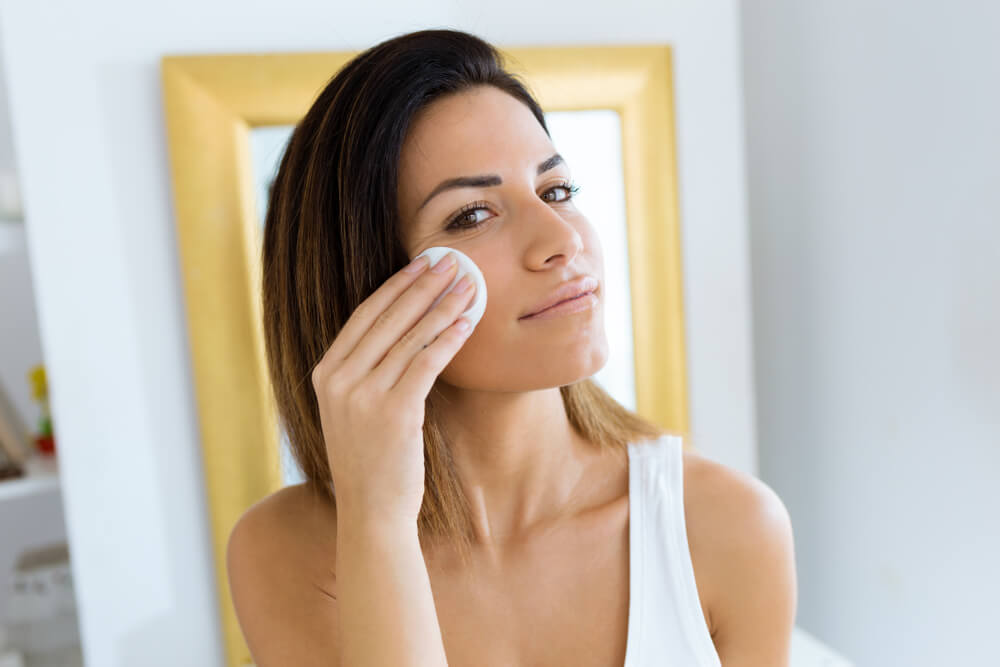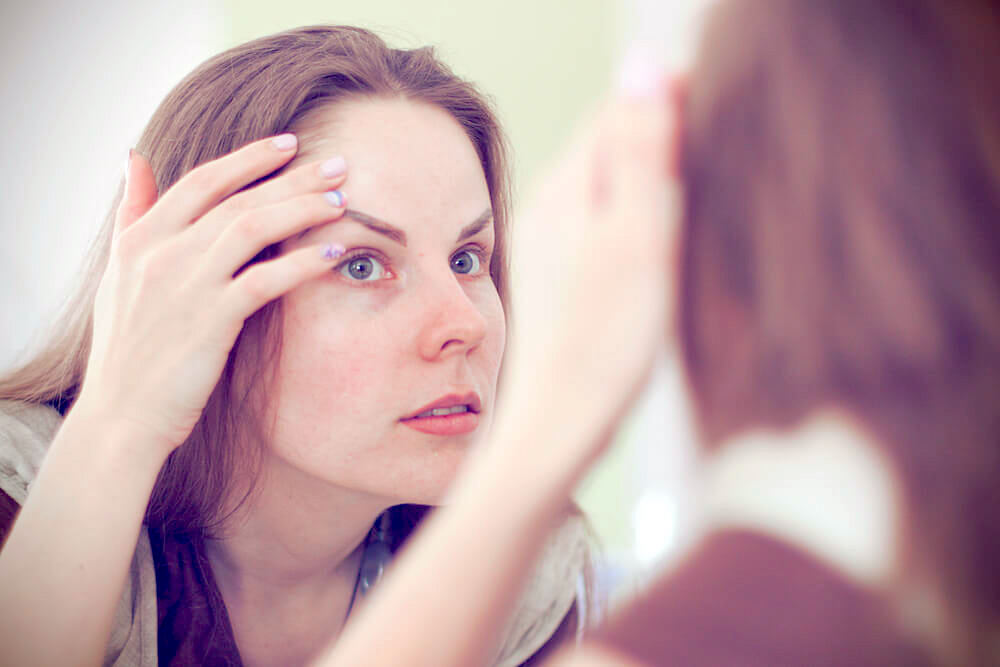
8 Signs You’re Not Cleansing Your Skin Properly
With how busy life gets and the number of tasks and responsibilities that keep piling up, it is easy to neglect skin care habits that take some of our time.
There are days where we don’t have the energy to go through even a 5 step cleansing routine and go straight to bed. You probably experience a phase wherein some days you would forget to take off your makeup because you were super exhausted from work and the morning after your skin will feel sticky and greasy. Gross right? As a college student or a working adult, you can definitely relate.
However, you will realize the time that costs you a few minutes every morning and every night are an investment making your skin retain its youth. Doing otherwise may sentence you to suffer some consequences such as these:
1. Breaking Out
Although acne is a skin condition that both the rich and poor experiences, there is an underlying stigma making people who have it feel insecure and uncomfortable with their looks. Though somehow, having the hormonal misfortune of triggering acne is inevitable, there are some preventive and remedial measures we can take.
What Happens to Your Skin?
Before going into detail on how to cure and prevent acne, it is best to learn about this skin condition for us to have a better picture.
The cause of acne is very simple. The pores are like the vents that help our skin to breathe. It helps our skin by disposing some of our bodies’ excess in the form of oil. Pimples then are formed when oil gets clogged in our pores.
Furthermore, these residues clogged in the pores may be infected by airborne bacteria brought by exposure to external agents such as dust. The bacteria that infects pimples and triggers acne is called Propionibacterium acnes.

Causes of Acne
One prevalent cause of acne is a hormonal imbalance. The main factors that come into play are the hormones known as androgen in adolescents and estrogen in adults. As the level of androgen rises, oil glands under the skin grow. Enlarged oil glands produce more sebum. Excessive sebum causes clogged pores and bacteria. This hormonal imbalance can be traced from internal bodily processes caused by:
-
- Medications and prescription drugs
- Stress
- Hormonal changes in adolescence
- Greasy cosmetics
- Menstruation
- Dehydration
What to Do to Prevent Acne?
Types of acne vary. Of course, severe acne will require more intensive medication. But for mild to moderate condition, there are easy and practical ways to go about your everyday skincare routine:
- Wash your face twice a day: It is best to use warm water, and mild cleansing products made for acne. Try to avoid antibacterial soaps because these products tend to make the skin coarse and dry.
- DO NOT pop your pimples: Although it is very tempting to do so, please refrain from popping because these will leave marks on your face that may be permanent scars.
- Be very selective of your cosmetics: Choose the makeup that is suitable for your sensitive skin type. Also, do not put too much makeup on your face especially when you are still recovering from acne. Chemicals in them may clog the pores and trigger more pimples.
2. Your Skin is Super Dry
The roughness of the skin is due to the low amount of natural oils and lubricants that should keep the skin soft and smooth. Although, this condition is most common among the elderly, dry skin can be triggered by various environmental factors such as temperature and humidity.
Development of Cracks and Dry Patches
The epidermis, the outer layer of our skin, is made up of lipids and proteins. They prevent skin dehydration and retain moisture. Thus, deficiency of proteins and lipids makes the moisture evaporate quickly leading to rashes and cracks on the skin.
Xerosis (dry skin) is very common especially during hot weathers. However, leaving it untreated may lead to bacterial infections and severe skin diseases.
How to Treat Dry Skin?
Although in the offset of developing dry skin is usually mild, it is important to take caution to treat this skin condition as soon as possible. Here are some essential tips for your skin care routine:
- Do not over wash your face.
- Avoid using harsh soaps and cleansers.
- Do not over exfoliate.
- Religiously use lotions and moisturizers especially when going out.
3. Your Skin is Too Oily
People with this condition will likely develop acne. For the most part, having persistent oily skin has to do with stress, hormones, and genetics. Having oily skin is practically harmless, but it may sabotage your fresh look and makeup effort when you go out.
Common Symptoms
Other than the obvious fact that the face looks shinier more frequently than most people, there are a few telltales of having excessive oil production in your pores:
- Prevalence of whiteheads and blackheads
- Persistent development of pimples
- Skin looks rough and thick
These signs may also be caused by various factors such as frequent exposure to heat and humidity which makes your pores get used to producing more oil to hydrate the skin. In time, even in cold places, oil glands may switch to autopilot and generate unnecessary oil.
How Do I Manage Excessive Facial Oil?
As having oily skin is inevitable for people who are born with it, proper skin care handling might as well be the key to look fresh as much as you can. This includes the right routine with the right products that should be done on an everyday basis:

- Consider using a toner. A toner is always best used after washing your face for deeper cleansing. Toners have soothing properties for the skin such as natural astringents. For oily skin, the best products to use are those with witch hazel contents.
- Facials masks. The facial masks are good deterrents for oily skin. They contain minerals that can absorb oils, sebum levels, and shininess without causing irritation.
- Use moisturizers regularly. Some people steer clear of moisturizers because they think these will make their skin greasier. On the contrary, moisturizers are very important in preventing oiliness. As it was mentioned earlier, oil glands tend to produce more oil when dehydrated. Moisturizers act as an external aid to prevent dehydration striking a balance in the body’s processes.
4. Redness of Skin
Swollen and reddish skin is often a symptom of acne, seborrhea, and rosacea. It is usually caused by irritation due to too much exposure to dust and the sun. Facial redness comes with itching and rough skin texture that can be very painful.
Things You Don’t Know Causing This Skin Condition
Although facial redness can be the side effect of other diseases such as lupus and eczema, there are certain practices and pet peeves that can trigger this type of irritation:
- Drinking too much alcohol. Although our faces turn reddish when we are drunk, frequent and excessive amount of alcohol in the body makes small blood vessels to widen in your skin and causes capillaries to break leading to irritation.
- Using low-quality cosmetics. Beauty products do not need to be expensive to be considered of high quality. Be very selective in buying your beauty cosmetics what use is a great deal if it irritates and damages your skin?
- Skipping your daily cleansing routine. We are inevitably exposed to airborne chemical agents that are harmful to our skin. These may build up in our skin and cause irritation. Yes, it is tempting to go straight to bed after a hard day’s work, but you should not neglect washing up. It will make your skin look better, and you will be refreshed and get a better good night’s sleep.
5. Burning and Stinging
Pain receptors are our bodies’ signal to tell us that there is something wrong. These sensations in our skin may entail damage or allergic reactions to external agents we have been exposed to. The same as facial redness, burning and stinging may also be side effects of various skin diseases or irritation from harsh skincare products.
How to Soothe Your Skin
To be able to get to the bottom of this, you should first figure out what is causing this irritation. Whether it is allergies or the use of harsh skin care products, it’s better to consult first your doctor or dermatologist for you to know proper remedial and preventive measures that are suitable for your condition. In the meantime, before you visit your doctor, try to:
- avoid scratching damaged areas (no matter how itchy it may get);
- use unfamiliar skin products; and
- always wash the areas properly with mild cleansers only.
6. Presence of Milia
Milia is a type of acne that is caused by skin disorders such as bullous lichen planus and bullous pemphigoid. These tiny white bumps are nothing to worry about because usually, they disappear after a few days. But of course, it would be better to sport a smooth, flawless skin.
Types of Milia
There are four types of milia. These are practically the same kinds. The only difference is where in the body does it appear.
- Primary Milia: The most common and typically appears on the face.
- Secondary Milia: This can appear anywhere in the body.
- Eruptive milia: This appears as small white bumps in the neck and head.
- Milia en Plaque– This is the rarest type, and it appears near the ear and upper eyelids.
Milia are practically harmless but if you notice any abnormalities such as the unlikely size and prevalence to your body, be sure to pay a visit to your doctor right away.
7. Peeling
Peeling is caused by other skin conditions such as psoriasis, eczema and essentially dry skin. It is also called exfoliative dermatitis when the peeling has spread in a large portion of your body. This may cause discomforts such as itchiness and bruises. Skin can also be rough, patchy and affected areas may be swollen.
Some Effective Remedies
Organic home remedies are always one of the best ways to medicate mild skin condition. Although as much as it is fun to play beauty guru in the kitchen, consult your doctors before trying anything new to treat your skin.
However, if you do not have time to make organic facial masks, here are some tips that will be useful to heal and prevent peeling:
- Use lukewarm water in your bath to open up your pores.
- Use a gentle exfoliator as a facial cleanser.
- Use soft towels to dry your skin.
- Apply topical anti-inflammatory cream with aloe vera after cleansing your face.
8. Signs of Aging
These are those wrinkles and fine lines that will eventually grace our facial features. Having these earlier can be side effects of stress, hormones, genetics and also dry and coarse skin.

Aging, of course, is inevitable and every second that passes makes our bodies older by the moment. It is not a skin condition, but this is what most of us try to delay its telltales. To do so, we must be very particular not just in our skin care routine, but also in our day to day activities.
Essentials in Fighting the Signs of Aging
Preventing wrinkles and fine lines to show does not only take topical moisturizers and night creams. This goal requires a good and healthy lifestyle. Because what we do to our bodies manifests through how we display ourselves and looking younger means looking healthier and happier. Therefore, here are some tips that you definitely have to live by to achieve that younger looking skin:
- Fill your diet with food rich in fiber, vitamins, and minerals instead of fats and sugar.
- Drink plenty of water.
- Exercise regularly.
- DO NOT sleep with makeup on.
- DO NOT skip your morning and evening cleansing routine
Follow these tips and make it part of your daily routine and in no time, you may be surprised to look five years younger!
Taking care of your skin is both a lifestyle and a sacred commitment to your body. It does not only entail your morning and evening cleansing routine but also your diet and day to day activities. So before skipping that sunscreen, ditching the evening routine to go to bed and neglecting to wash your face because you are already super late for work, think about the consequences that may show in your skin.
Remember, wanting to look good is not vanity, it is simply our right to feel confident with our bodies. So, do things that make you look your best and be kind to your skin, always.




This deff gives me good insight into what I’m not doing right when it comes to my skin! Very informative!
I have a very dry skin and could use any help I can get
i worry about this all the time
I am in my 60’s, living in Hawaiiso I really have to cleanse, nourish & apply sunscreen daily..Thank you for this article.
Great info I am a big fan of washing face twice a day then using a toner then moisterizer is a big must and during winter months if I’m home and no makeup on I will put more facial cream on during the day.
My skin is dry but I use a lot of moisture on it which helps alot.
This information was so helpful and I’m so glad I read this article because in doing an experiment to create my own makeup line and its helpful to learn the different types of signs like clogged pores, acne, and oily skin. I have all of these so helps to know how to treat these problems and help others.
Very interesting article.
Having oily skin this article helps with tips for me. Thanks.
Although I don’t like to admit it, I’m starting to see signs of aging on my skin. I do all of the helpful tips, EXCEPT the last. If I don’t put on makeup, I often skip a cleaning regimen.
So much great information. Thanks for sharing!
I never heard of Milia until this blog. Thank you for the information
This winter weather isn’t helping either
Thanks for these tips!
Interesting I learned alot
Thanks for all the amazing info and awesome tips!!
Very well done. I learned a lot about how to treat my skin.
Thank you for posting this informative article that everyone should read.
Great information
Some good ideas and tips, thanks.
I have dry skin and need to take better care of it
One thing I have learned is to never use soap. I have zero skin problems except for the very rare blackhead. My skin looks good, feels good and has a good color
This is very good, detailed information about skin and skincare.
Thanks for the great tips and all the info!
Thank you for these tips
Good info!
Ty,my ol Man is a diabetic and healng,dry skin he has..ty for this info❤️
Great info and tips. Thank you!
This is a great article. I’m going to share it with my preteen who is constantly over washing her face.
A clean fresh face always feels so good.
Thank you for these amazing tips!
I love your truffoire products! Worth the investment! I would love to win the diffuser to add to my collection
Wow, thanks for this. I learned a few new things today about my skin.
i have super dry skin and i am diabetic and anemic
Thank you for the information.
All good to know, wish it had more info on dry skin though.
Thanks for all this good information
Lots of great information on this post! I have noticed my skin change a lot since changing facewash and stopped using make up daily.
“Drink plenty of water.” That’s always a tough one for me … especially when there’ always coffee in the pot.
This is a lot of great information I can use.
This was a really informative post – thanks so much!
These are great tips. I always have been huge on skin care and even though I ma older it shows how well I have done this.
Good tips thank you
a lot of great information here………… have to admit that some of these I don’t do but should be doing
This explains while I still have acne at my age. It happens when I least expect it.
My skin is dry and has dry patches. Now I can learn how to change it with these tips.